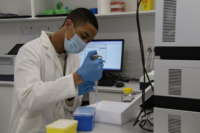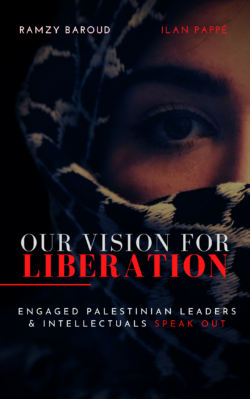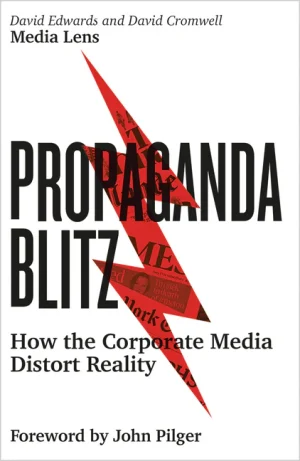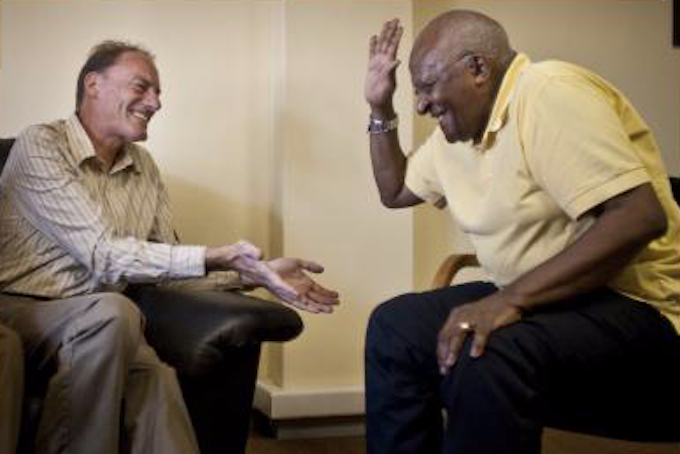Ideology is a frequent discriminatory stumbling block that fuels opposition to basic income support for millions of South Africans
By Alex van den Heever.
Original post: https://www.dailymaverick.co.za/article/2022-01-30-is-opposition-to-basic-income-support-for-vulnerable-adults-informed-by-evidence-or-ideology/#Echobox=1643571804
The recent ‘leaking’ of a President’s Economic Advisory Council note arguing against basic income support for millions of South Africans raises many questions about whether this is really a debate about technical constraints or one that is ideological — with technical considerations largely irrelevant.
For over two decades, pretty much the same thinking has dominated economic policy in South Africa — with what appears to be a perpetuation of poor economic and social outcomes.
The question is whether these poor outcomes are an accident of fate, or just the result of the repeated application of the same kinds of thinking.
In this respect, it is worth noting that if the Republicans in the US were to impose their dystopic vision on any society from scratch, it would pretty much look like South Africa today.
It would be characterised by structural poverty and deep social divides arising from market failures in the distribution of income and its close relative, the social distribution of risk.
Only the well-off would have any form of social security and the rest, well, that’s not the problem of government or the privileged.
So, why is the distribution of risk so important to incomes?
There are many events that can disrupt the flow of incomes to families.
These include the death, disability or illness of a breadwinner as well as normal activities such as giving birth and looking after an infant child or losing employment due to old age.
In addition, the loss of employment due to the structure of the economy and economic cycles imposes severe costs and hardships on individual households outside of their control.
The operative phrase here is “outside of their control”.
While the occurrence and duration of these various events cannot be predicted at the individual level, they are, however, predictable at a societal level. This is quite simply why social security systems pool these risks.
Not only will most of these events occur at some point in any household’s lifetime, but they will happen to some households somewhere at all points in time.
However, the effects of these events are not evenly distributed.
Not unexpectedly, the more precarious a household’s social condition, the more catastrophic the impact of such an event, with the effects harming the lives and life paths of households.
The converse is equally true: the less precarious a household’s social condition, the greater its ability to mitigate the effects of such an event alone.
Think of a game of “snakes and ladders”, where for most of the population there are many more snakes than ladders. For the privileged few, in contrast, there are few or no snakes and just ladders.
In such a game, “winning” and “losing” outcomes are structured into the game and have little to do with effort levels, competence or even chance.
In any society that individualises the bearing of such income-harming events, socially predictable risks are implicitly transferred onto the households that have no real ability to manage them on their own.
Only a very small percentage of households will be able to manage such risks on their own — roughly equivalent to half of the highest-earning 10% of households.
The systemic outcome of individualising the distribution of risk in this way is to cement in disadvantage, which then “mysteriously” manifests as endemic poverty and inequality.
Social protection regimes redistribute the snakes and ladders, expanding access to ladders and reducing the impact of snakes.
To conventional economists, the social implications of these risk distributions are invisible — and therefore, to them, do not exist.
There was a time when surgeons also did not recognise the importance of washing their hands prior to surgery.
Why? Because the existence of “germs” was just a theory, as no one could see them.
It took the invention and use of the microscope to convince surgeons they were killing their patients.
This mindset is age-old and reflects the path dependency of entrenched practices and thinking where emergent evidence will not be considered until such time as it becomes overwhelming and obvious to pretty much everyone.
The recent note by the President’s Economic Advisory Council (PEAC) on the extension of basic income to income-compromised adults closely resembles this failure on the part of surgeons.
As with bad waiters, there are “none so blind as those who do not wish to see”.
Conventional economists, in fact, have no technical expertise or models to understand the social and economic transmission mechanisms associated with social income-pooling schemes.
They are therefore not in any position to comment with authority or evidence on the social and economic effects of any social security arrangement, whether in reference to a system of basic income or social insurance.
Conventional macroeconomic models, used for relatively basic projections or limited policy assessments, also over-aggregate the key features of any economy (and society), and cannot be used for anything other than the crudest of appraisals.
So, what such economists, using such models, cannot see, effectively “doesn’t exist”.
When it comes to the resulting policy analysis, the evidence gaps are invariably filled by selecting assumptions that reflect the prejudices of the economists involved and drive all the results. Alternatively, they just cut out the middleman and run with assumptions.
If we leap back in time to reflect on the utilitarian economists of the 19th century, it illustrates in fairly stark terms how evidence-free theorising in economics persists to this day.
For instance, there was a UK Royal Commission that in 1834 examined and reported on the workings of the “poor laws” which governed income relief (social assistance) paid by local authorities to those without adequate incomes.
A particular target of the commission was the so-called “Speenhandland system”, which supplemented the income of poor households based on the price of bread (a food poverty line of sorts) and family size.
These measures had been introduced via the “poor laws” system to address the fact that even earned incomes were insufficient to support poor families.
The Royal Commission, however, determined that the system of relief for the poor had the following outcomes:
- “paupers claimed relief regardless of their merits”;
- “large families received the most relief, therefore improvident marriages were encouraged and this led to larger families”;
- “women were able to claim relief for their illegitimate children, so the system encouraged immorality”;
- “labourers had no incentive to work hard and be thrifty when worthless idlers got more relief than could be earned by honest hard work”;
- “employers kept wages deliberately low”;
- “paupers had no respect for an employer when they knew that their wages would be supplemented by the parish”; and
- “men were discouraged from providing for their families and aged parents because they could ‘be put on the rates’”.
These outcomes were not informed by evidence and instead reflected views that “the existing ‘poor law’ undermined the prosperity of the country because it interfered with the ‘natural’ laws of supply and demand”.
The commission worked from the premise that poverty was inevitable (“the poor are always with you”) and that only the “deserving poor” merited support.
If you were able-bodied, you were by definition “undeserving”.
The commission consequently recommended a “poor laws” regime that expressly punished the able-bodied poor through a draconian workhouse system.
This, they assumed, would create an incentive for the poor to sort themselves out.
The idea that being poor was the outcome of structure rather than conduct was beyond the limited worldview of the utilitarian Benthamites of the period.
But how different are these views from those that inform government policy in South Africa today?
Importantly, how much evidence is used to inform such views?
It is worth noting that this 1834 position was comprehensively thrown out with the post-World War 2 European consensus on social protection, where redistributive schemes were systematically and comprehensively introduced to eliminate poverty and inequality.
After all, how could you ask the (majority) poor to fight for you against Hitler and Stalin when your society offered them nothing but hardship and suffering?
It was plainly understood that if you treat people like dirt, they may, and probably will, treat you the same at some point.
Were a Sweden or a France to eliminate their redistributive schemes now, their levels of poverty and inequality would gravitate towards South Africa’s outcomes.
Stable societies require that resources are reasonably pooled at the societal level using good institutions to transfer the burden of social risks faced by everyone, from individual households to society as a whole.
In simple terms: you restructure the distribution of snakes and ladders to provide the maximum opportunity for advancement to all.
To a large extent, the PEAC rejects this view and instead reflects the conventional wisdom espoused by the Royal Commission, arguing that social support for the “able-bodied” will allegedly undermine employment and fiscal sustainability:
“Significantly increased social grant spending would likely weaken the position of poor South Africans as it would erode public services and infrastructure, slow down employment creation and result in a crisis for public finances that would take years to resolve.”
This mirrors Commissioner Nassau Senior’s argument (from the Royal Commission) that “the great test which must be applied to any project of state action in regard to relief [social assistance] is the question whether it has any tendency to increase that which it is proposed to diminish”.
The commission’s argument is simple: if you provide income support to able-bodied people, they will have no incentive to work.
And economists, “as everyone knows”, are the “pre-eminent experts on incentives”, at least in their own minds.
But if the fear of starvation worked as an incentive to generate economic growth, South Africa would be the fastest-growing economy in the world.
However, very little has changed with respect to both poverty and inequality from 1994, and there are no policies proposed — outside of income support for those in income poverty — that are any different to what has been proposed before.
Along these lines, the PEAC effectively adopts an ideological posture, arguing that “inclusive economic growth must be built on employment creation. Our vision must be to promote employment rather than ever-increasing state-funded income support. For those of working-age, grant support should be temporary with clear pathways to employment… We face a real danger of policy error at a macroeconomic level where we will limit our economy’s growth and job creation potential by increasing the system of social grant payments in an unsustainable manner that would weaken economic [sic] and undermine the country’s capacity to address poverty and unemployment” (p. 14).
According to this thesis, labour markets are primarily responsible for the distribution of income, and growth expands labour markets.
Along the same lines as the Royal Commission, therefore, income support to the able-bodied undermines the integrity of the labour market and therefore growth.
It is worth noting that this proposition isn’t really arguing that income support for working-age adults is not feasible. It is in fact arguing that it should not be done at all. Ever.
With this reading, and consistent with those of the Royal Commission, even if funds were available, this policy should not be pursued.
Invoking macroeconomic arguments and fiscal constraints, therefore, comes across as mere window-dressing for ideological opposition to such an income-support programme.
That is, when poor households are concerned.
For consistency, such a position would require a re-assessment of all programmes funded through the fiscus that involve income support provided to working-age adults in South Africa.
It may surprise many to find out that we have many such programmes, and they are not cheap.
They have the following features in common: they subsidise the top 10% of income earners; they largely fly under the radar as they are provided through the tax system; and they have no associated macroeconomic or other appraisals to support their social and economic outcomes.
The estimates in 2018 values are (Annexure B – Tax Expenditure Statement):
- Tax subsidies for retirement provision, which include deductions against contributions and the elimination of the 18% withholding tax on retirement fund assets in 2003:
o Subsidies on contributions: R87-billion
o Subsidies related to the return on investments of retirement fund assets: R46-billion (own estimate — also see Social Budget bulletin 2)
o Total = R133 billion
- Tax-free savings accounts: R3.4-billion
- Employment tax incentive: R4.5-billion
- Participation exemption, which exempts foreign dividends from income tax if a South African resident holds at least 10% of the total equity shares and voting rights in a foreign company declaring a foreign dividend: R11-billion
In total, these subsidies amount to an annual set of permanent obligations on the fiscus for working-age adults quantified in 2018 values at around R146-billion.
In contrast, the potential maximum recurrent value of the Covid-19 social relief of distress (SRD) grant in 2021 prices (not 2018 values) is around R56-billion with a maximum, but unlikely, ceiling value of around R76-billion at maturity.
The PEAC proposal for the Covid-19 SRD grant is, however, R0.
The irony should not escape anyone that, according to the PEAC, it is fiscally and macroeconomically irresponsible to provide income support to the millions of income-compromised adults of working age in South Africa, while government presently funds working-age adults in the top decile to the tune of R146-billion per annum (in 2018 values).
In the game of snakes and ladders, the PEAC clearly has no concerns about more ladders for the privileged and more snakes for the poor.
This is important because it raises clear questions about the authenticity of the PEAC’s admonitions about fiscal and macroeconomy responsibility.
Importantly, therefore, there is ample scope for a restructuring of the fiscal snakes and ladders to achieve a more effective social outcome with available resources.
Not exercising this discretion to support income-vulnerable households is therefore quite evidently a policy choice and not an imposition conditioned by an unfortunate set of time-bound economic circumstances.
Let no one be fooled.
Professor Alex van den Heever is chair in the field of Social Security Systems Administration and Management Studies at Wits School of Governance and chairperson of the Expert Panel on Basic Income Support.
The post Is opposition to basic income support for vulnerable adults informed by evidence or ideology? appeared first on Basic Income Today.
This post was originally published on Basic Income Today.
 (@chrischirp)
(@chrischirp) 












